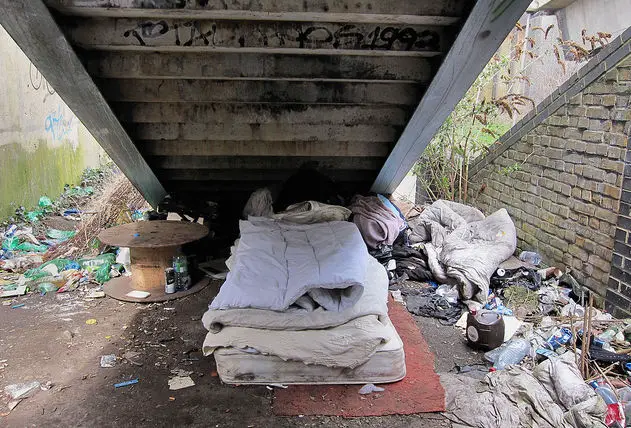A ‘bold and ambitious’ strategy to tackle homelessness — following a 500 per cent increase in rough sleeping since 2015 — will go before Isle of Wight councillors this week.
The council is legally required to implement a homelessness strategy by the end of the year, following new government legislation. Its previous strategy expired six years ago.
Prevention, intervention and recovery
The new strategy will focus on prevention, intervention and recovery — aimed at making homelessness a rare, brief or one-off occurrence for people, rather than a long-term situation.
It also includes plans to end rough sleeping, reduce the number of people living in temporary accommodation, improve early support services for people who lose their homes, reduce evictions and ensure plans are in place to prevent people being turned into the street.
Efforts “must be redoubled”
It will go before the council’s scrutiny committee tomorrow (Tuesday) and the cabinet on Thursday.
In a report accompanying the strategy, the council accepts it must ‘redouble its efforts’ in light of government legislation calling on local authorities to do more to reduce homelessness.
Government funding
Since 2017, the council has received £1.5 million in government funding to tackle homelessness.
It will receive funding for the new strategy, which will run until 2023/24, but the amount has not been decided.
Mosdell: Deliberately challenges and motivates us to, quite frankly, do better
Cllr Clare Mosdell, cabinet member for adult social care, public health and housing needs, said it was a ‘fundamental need’ to have a home.
She said in the report:
“It is incredulous to many of us that people in the year 2019 find themselves in the position that they have no place to call home.
“This strategy is purposely bold — it uses language that deliberately challenges and motivates us to, quite frankly, do better.”
She described the strategy as ‘cost effective’ and ‘humane.’
Outdated and crisis-driven approach
The strategy notes the current approach is outdated and crisis-driven, resulting in a failure to provide rapid, personalised intervention when people become homeless.
It also notes welfare reforms, including benefit caps, the introduction of Universal Credit and lack of social housing, have contributed to people losing their homes.
Earlier this year, the council invited bids to provide family accommodation and outreach services from April 2020, worth £10.5 million.
This article is from the BBC’s LDRS (Local Democracy Reporter Service) scheme, which OnTheWight is taking part in. Some alterations and additions may be been made by OnTheWight. Ed
Image: alanstanton under CC BY 2.0





